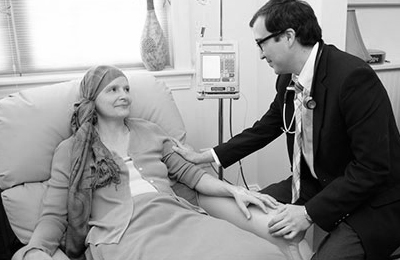Gratitude and Chronic Illness

Living with a chronic illness can offer a special set of skills, emotional awareness, and shift in the ways in which we associate with gratitude. When we think about gratitude, what comes to mind is often our external world, rather than what is experienced inward. With the grief that ensues in living with a chronic condition, our mind, body and soul begin to reconnect itself differently; what might have been no longer serves us now; we begin to adopt new practices of love, appreciation, and care. When it comes to treatment, chronic illness patients often experience a disconnect in what these mean versus what it may have meant prior to their diagnosis. Unfortunately, mainstream medicine offers only a narrow lens in healing, while most of us suffering with anything chronic (mental and physical) require an adaption of treatment and lifestyle embedded in our daily living....
Gratitude is often looked at as a personality trait, yet it can also be cultivated into a practice. Research shows us that those who practice in gratitude writing (identifying what they are grateful for daily) showed better moods, coping styles, and physical health than those who did not. Those with a higher level of gratitude also report more optimism, higher self-esteem, and more satisfaction with life.
It’s important to shed light on the importance of validation of those living with chronic illness. That meaning the ebbs and flows, the ups and downs, and the overall processing of grief in loosing what once was or what could have been in our bodies and futures. We also can look at the importance of what chronic illness can open us up to: gratitude turned inward- an appreciation of our bodies not just in optimal wellness and functioning, but in functioning overall. Gratitude in the breaths we take in on a crisp fall day, appreciation for our bodies having the strength to lift itself up so that the beauty of the world can be absorbed, are examples.
It’s important to have and talk about days when our gratitude can wave thin, but in those difficult days, looking inward into what it is our bodies are telling us, we then start to adapt a new set of skills and mindset into a deeper relationship with ourselves. Gratitude can help us do this. We learn to slow down and reframe these thoughts we may have of betrayal and negativity towards ourselves to appreciation, kindness, and acceptance. Grief often disconnects us with the world and ourselves, as we feel isolated in our experience, and for some, even in our own bodies. With adapting a practice of gratitude, we learn to appreciate and work with what we currently have and can offer to ourselves and those around us. We can then also learn to not just endure a chronic illness, but to also flourish.
See here for some ideas in how to cultivate a daily practice of gratitude.
https://www.mindful.org/an-introduction-to-mindful-gratitude/
Resources:
https://pdfs.semanticscholar.org/bca9/6652caccfe446e809ac8c6fc20d36eef8c30.pdf
About Danielle Stram,, M.S. Ed, LMHCRelated Blog Posts

What are the Root Causes of Epilepsy? And How Does IV Therapy Help?
Epilepsy is a condition in which brain activity becomes abnormal and most commonly leads to symptoms of seizures. According to the CDC, in 2015 about 3.4 million American have epilepsy of which 470,000 are children. Most treatments for epilepsy rely on pharmaceutical therapies but about 1/3 are unresponsive to medications. There are multiple mechanisms that have been proposed as the cause of…Read the Post
“Be the Change You Want to See in the World” - Mohandas Gandhi
The seasons are shifting and more change is on the horizon. To resist change is to invite suffering, to surrender to change is to open ourselves to endless possibility.Read the Post
Change your Mind
Everyday it seems we are reading about some news or study presenting evidence that our mind is connected to our health. Our thoughts effect how we feel, and how healthy we are.Read the Post
Related Services

Chronic Disease
Nowhere is the need for an integrative approach more apparent than in the management of chronic illness. We are a synthesis of many systems all working together, and when one or more systems become diseased, all of the others will be stressed as well. From physical challenges, to the challenges of everyday living, to a satisfying quality of life, we have to go past seeing that illness in…Chronic Disease
How We Can Help You
Whether the goal is to lessen pain, find alternatives to prescription drugs, reduce stress, or if you are struggling with eating disorders, chronic illness or simply want to improve your quality of life, the Stram Center's individualized approach will help you take charge of your health. We’re here for people who are: Looking to improve their health and quality of life through lifestyle changes…How We Can Help You
Integrative Medicine
Integrative medicine is the blending of conventional medicine with holistic, complementary, and alternative medicine. Integrative Medicine is defined as healing-oriented medicine that takes account of the whole person (body, mind, heart and spirit), including all aspects of lifestyle. It emphasizes the therapeutic relationship and makes use of all appropriate therapies, both conventional and…Integrative Medicine

Mental Health Counseling
At the Stram Center, we recognize that mental health is often the basis of your potential to navigate life’s challenges as well as to heal from physical illness. Understanding your full self, including traumas and difficulties you may have experienced, is often the first step to learn what your unique strategies are in the face of life’s difficulties. Quality healthcare should include support…Mental Health Counseling





















